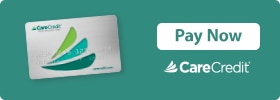Sleep Apnea
Sleep apnea is described as a period of "not breathing" for 10 seconds or more while sleeping. The most common type is called obstructive sleep apnea (OSA). OSA results from a blockage of your windpipe, which generally is caused by the tongue, tonsils, or excess tissue in the throat. It can affect anyone, but is seen mostly in obese individuals. Central apnea (CA) may result from an abnormality in brain function that prevents the "breathing" stimulus from reaching the diaphragm (large muscle in the chest important in breathing), other chest wall muscles, and the lungs. Other causes include a stroke, brain tumors, or chronic respiratory disorders. Often the cause is unknown. You are more likely to have sleep apnea if you are obese; have high blood pressure; hypothyroidism or heart disease; suffer from depression or anxiety; abuse alcoholic beverages or smoke.
Symptoms may include:
Snoring with pauses in breathing cycle that may last 1 to 2 minutes
Choking and gasping for breath during sleep that may cause you to awaken
Unusual sleepiness, irritability and decreased energy levels during the day
Interrupted sleep patterns, insomnia, and headache upon awakening
Inability to "get a good night’s sleep"
What your doctor can do:
Diagnose the disease by:
Performing a physical exam and reviewing your medical history and current medications.
Ordering laboratory blood tests, an electroencephalogram (EEG) test that checks the brain’s electrical activity, and observing your sleep patterns in a sleep lab.
Treatment may include:
Surgery for the removal of excess throat tissue (e.g., tonsils).
Ordering a special mask and small air-compressor called Continuous Positive Airway Pressure (CPAP) or a mouth-piece to keep the airway open during sleep.
Prescription of certain medications in severe cases.
What you can do:
Weight reduction is important if you are overweight.
Sleep on your side, not your back. Attach a ping-pong ball or tennis ball to your pajamas to keep you off your back.
Avoid alcoholic beverages and sleep aids.
Start an exercise program with your doctor’s permission and advice.
Use your CPAP and/or mouth-piece regularly
Contact your doctor if symptoms continue or worsen despite treatment.
Seek immediate medical assistance, if you develop difficulty breathing, chest pain, or shortness of breath!





